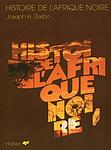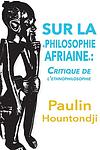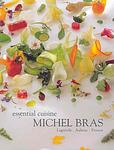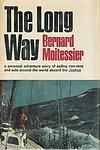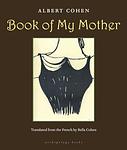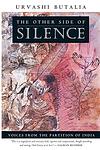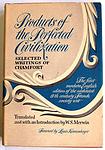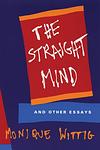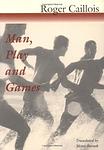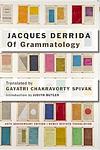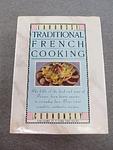The Greatest French "Nonfiction" Books Since 1950
Click to learn how this list is calculated.
This list represents a comprehensive and trusted collection of the greatest books. Developed through a specialized algorithm, it brings together 300 'best of' book lists to form a definitive guide to the world's most acclaimed books. For those interested in how these books are chosen, additional details can be found on the rankings page.
Genres
Countries
Date Range
Reading Statistics
Click the button below to see how many of these books you've read!
Download
If you're interested in downloading this list as a CSV file for use in a spreadsheet application, you can easily do so by clicking the button below. Please note that to ensure a manageable file size and faster download, the CSV will include details for only the first 500 books.
Download-
26. Histoire De L'afrique Noire by Joseph Ki-Zerbo
"Histoire De L'afrique Noire" is a comprehensive exploration of the history of Black Africa, written by Joseph Ki-Zerbo. The book delves into the origins of African civilizations, the impact of colonization, and the struggle for independence. Ki-Zerbo analyzes various aspects of African history, including political, economic, and social developments, highlighting the contributions of African leaders and the challenges faced by the continent. This informative and engaging work provides a valuable resource for anyone seeking a deeper understanding of the rich and complex history of Black Africa.
-
27. Portrait Du Colonisé Suivi De Portrait Du Colonisateur by Albert Memmi
"Portrait Du Colonisé Suivi De Portrait Du Colonisateur" is an insightful and thought-provoking exploration of the complex dynamics between the colonized and the colonizer in the context of French colonialism. Through a series of powerful portraits, the author delves into the psychological, social, and cultural aspects of both parties, shedding light on the dehumanizing effects of colonization on the colonized and the inherent contradictions within the colonizer's mindset. This book offers a nuanced analysis of the power dynamics and the lasting impact of colonialism, making it a significant contribution to postcolonial literature.
-
28. L'étrange Destin De Wangrin by Amadou Hampâté Bâ
"L'étrange Destin De Wangrin" by "Amadou Hampâté Bâ" is a captivating narrative that delves into the life of Wangrin, a complex and enigmatic figure in West African society. Through a series of interconnected stories, the book explores Wangrin's rise from a humble clerk to a powerful and influential figure, as well as his eventual downfall. Set against the backdrop of colonialism and cultural clashes, the novel offers a thought-provoking exploration of identity, power dynamics, and the consequences of one's choices.
-
29. Soundjata Ou L'épopée Mandingue by Djibril Tamsir Niane
"Soundjata Ou L'épopée Mandingue" is a historical novel that tells the captivating story of Soundjata Keita, the legendary founder of the Mali Empire. Set in 13th-century West Africa, the book follows Soundjata's journey from a crippled and exiled prince to a powerful warrior king. Through battles, alliances, and encounters with mystical beings, Soundjata's determination and leadership skills are tested as he strives to unite the Mandinka people and reclaim his rightful throne. This epic tale explores themes of courage, destiny, and the enduring power of legends.
-
30. Sur La Philosophie Africaine by Paulin Hountondji
"Sur La Philosophie Africaine" is a thought-provoking exploration of African philosophy by Paulin Hountondji. The book challenges the prevailing notion that African thought is inherently inferior to Western philosophy, advocating for a reevaluation of African intellectual traditions. Hountondji critically examines the impact of colonialism on African philosophy and argues for the development of a truly African philosophical framework that embraces cultural diversity and challenges Eurocentric biases. Through his insightful analysis, Hountondji highlights the richness and complexity of African thought, making a compelling case for its recognition and inclusion in the global philosophical discourse.
-
31. Memoirs by Raymond Aron
The book in question is an intellectual autobiography by a prominent French philosopher and sociologist, chronicling his life from his early years through the tumultuous events of the 20th century. It delves into his experiences during World War II, his observations on the Cold War, and his relationships with other notable intellectuals of his time. The author reflects on his philosophical and political evolution, offering insights into his analytical approach to history, politics, and society. His memoirs serve as a window into the mind of a thinker deeply engaged with the ideological and historical challenges of his era, providing a personal perspective on the broader intellectual currents that shaped the modern world.
-
32. The Raw and the Cooked by Claude Lévi-Strauss
"The Raw and the Cooked" is an anthropological analysis of the myths and customs of tribal societies, particularly those in South America. The author explores the concept of binary opposition, such as raw versus cooked or nature versus culture, as a fundamental structure in these societies' mythologies. The book provides a detailed and systematic study of the symbolic use of food and cooking in primitive societies, suggesting that the way a society categorizes food is a window into understanding its culture.
-
33. Distinction by Pierre Bourdieu
"Distinction" is a sociological analysis that explores the ways in which the tastes and preferences of individuals are related to their social positions and the structures of power within society. The book argues that aesthetic choices, ranging from music and art to food and drink, are not just indicators of personal preference but are deeply intertwined with social class and the distinctions that classes make to set themselves apart from others. Through a detailed examination of French society, the author demonstrates how cultural consumption patterns are formed and how they function as markers of social status, contributing to the reproduction of social hierarchies and class relations.
-
34. J'ai Quinze Ans Et Je Ne Veux Pas Mourir by Arnothy Christine
The book is a poignant memoir of a young girl's harrowing experiences during World War II. At the age of fifteen, she finds herself caught in the siege of Budapest, facing the horrors of war firsthand. With a blend of youthful innocence and a will to survive, she navigates the dangers of bombings, starvation, and the threat of death. Her narrative captures the resilience of the human spirit in the face of destruction, as she clings to life and the hope for a future beyond the devastation of conflict.
-
35. Black Skin, White Masks by Frantz Fanon
The book explores the complex effects of colonialism on the identities and psyches of black people. It delves into the psychological and social impacts of racism, analyzing how the internalization of colonial stereotypes leads to a fractured sense of self among the colonized. The author argues that black people are forced to wear "white masks" to navigate a world dominated by white values and expectations, leading to significant psychological distress and identity conflicts. The work is a critical examination of race, identity, and the lingering effects of colonial oppression.
-
36. Essential Cuisine by Michel Bras
"Essential Cuisine" is a comprehensive guide to gourmet cooking, written by a renowned French chef. The book provides readers with recipes that highlight the chef's innovative and unique approach to cooking, focusing on the use of fresh, local ingredients. The book also includes stunning photography of the dishes and the chef's home region, making it as much a visual feast as a culinary one. It is a must-have for anyone interested in haute cuisine and the art of fine dining.
-
37. The Long Way by Bernard Moitessier
The book is a captivating narrative of a sailor's solo circumnavigation of the globe during a historic yacht race. Rejecting the trappings of fame and competition, the sailor chooses to continue sailing beyond the finish line, embracing the sea's vastness and his deep connection with nature. His journey becomes not just a test of physical endurance but a spiritual quest, as he reflects on life, the modern world, and the harmony found in simplicity. Through storms, wildlife encounters, and the solitude of the open ocean, the sailor's tale is a profound meditation on the human spirit and our relationship to the Earth.
-
38. Book Of My Mother by Albert Cohen
This poignant memoir serves as a tender homage to the author's late mother, exploring the depths of maternal love and the profound sense of loss following her passing. Through a series of reflective vignettes and personal recollections, the narrative delves into the complex relationship between mother and son, marked by both deep affection and the inevitable strains of growing independence. The author grapples with guilt and regret over his perceived shortcomings as a son, while celebrating the enduring impact of his mother's love and the indelible mark it left on his life. The work stands as a universal meditation on grief, memory, and the unbreakable bonds of family.
-
39. Species Of Spaces And Other Pieces by Georges Perec
This book is a collection of essays and musings that explore the concept of space in its myriad forms, from the intimate to the vast, the mundane to the conceptual. The author employs a variety of literary styles and devices to dissect the spaces we inhabit, such as the page upon which one writes, the bed one sleeps in, the apartment, the street, and the city. Through this examination, the work delves into themes of memory, absence, and the everyday, encouraging readers to perceive the spaces around them in new and thought-provoking ways. The text is both playful and philosophical, inviting a deeper reflection on the spaces we often take for granted and the ways in which they shape our experiences.
-
40. The Voices Of Silence by Andre Malraux
"The Voices of Silence" is a profound exploration of the psychology, philosophy, and history of art and aesthetics. The work delves into the relationship between art and the human condition, examining how art has evolved and how it reflects the spiritual and intellectual developments of different cultures. It discusses the role of the artist in society and the transformative power of art, considering the ways in which art communicates beyond language and the silence of eternity. The book is both a meditation on the nature of artistic creation and a sweeping survey of world art, from the prehistoric to the modern era, offering insights into the enduring quest for meaning and beauty through artistic expression.
-
41. Products Of The Perfected Civilization by Sébastien-Roch Nicolas de Chamfort
"Products of the Perfected Civilization" is a collection of aphorisms, maxims, and reflections that delve into the ironies and contradictions of society, morality, and human behavior. The work offers a critical and often cynical look at the nature of man, the flaws of aristocratic society, and the pretenses of enlightenment and progress. Through sharp wit and concise language, the author exposes the hypocrisies of his time, questioning the very notion of a 'perfected' civilization and suggesting that beneath the veneer of culture and refinement often lies a core of vanity, folly, and vice.
-
42. The Straight Mind by Monique Wittig
The book is a collection of feminist essays that challenge the conventional understanding of gender and sexuality, positing that the concept of "woman" is a social construct created by a heterosexual society to uphold a binary gender system. The author argues that this system perpetuates the oppression of women and LGBTQ+ individuals by reinforcing the straight mind, a heteronormative way of thinking that marginalizes any form of difference. Through a radical rethinking of language, literature, and social structures, the essays advocate for a new feminist perspective that seeks to dismantle the straight mind and create a society where all forms of identity and expression are valued equally.
-
43. Camera Lucida by Roland Barthes
The book in question is a seminal work in the field of photography theory, blending personal reflection with philosophical investigation. The author delves into the nature of photography, exploring the medium's ability to capture the essence of a moment and its subjects. Through a two-part analysis, the author introduces concepts such as the studium and punctum to articulate the layers of meaning and emotional response elicited by photographs. The work is also a meditation on loss and memory, inspired by the author's search for the essence of his late mother in her photographs. The text is both an intimate journey and a critical examination of the power of images to evoke and preserve the fleeting nature of existence.
-
44. Man, Play And Games by Roger Caillois
"Man, Play and Games" is a seminal work that explores the nature and significance of play in human societies. The book categorizes play into four core types: competition, chance, simulation, and vertigo, and introduces the concepts of paidia and ludus to describe the continuum between free, unstructured play and rule-based games. The author argues that play is fundamental to human culture, serving both as a mirror of social life and as a form of activity that is essential for the development of civilization. Through a detailed analysis of different games and play forms across cultures, the book examines how play involves both the creation of imaginary worlds and the testing of boundaries, ultimately influencing various aspects of social life including art, language, and law.
-
45. Memoirs Of A Revolutionary by Victor Serge
"Memoirs of a Revolutionary" presents a vivid account of political activism and survival during a turbulent period in 20th-century Europe. The author, a committed revolutionary, provides an insider's perspective on the rise and fall of various socialist movements, detailing his involvement in the Russian Revolution and subsequent disillusionment with the Stalinist regime. Through his narrative, he explores the moral and ethical challenges faced by intellectuals and activists in a time of revolutionary fervor and political repression, offering a poignant reflection on the struggles and sacrifices of those who dedicate their lives to the cause of social change.
-
46. Renoir, My Father by Jean Renoir
"Renoir, My Father" is a captivating biography that offers an intimate glimpse into the life and work of the renowned French Impressionist painter through the eyes of his son. The book delves into the artist's personal and professional world, exploring his relationships, his struggles, and his profound influence on the art world. The narrative, rich with personal anecdotes and insights, paints a vivid portrait of a man deeply committed to his artistic vision, while also highlighting the familial bonds and the era that shaped his remarkable career. This work not only celebrates the legacy of a great painter but also provides a touching exploration of a father-son relationship.
-
47. Of Grammatology by Jacques Derrida
The book is a foundational text in the field of deconstruction, challenging traditional assumptions about the relationship between speech and writing. The author argues that Western thought has consistently privileged speech over writing, mistakenly regarding speech as a more direct expression of thought. Through a detailed critique of Saussurean linguistics, as well as the works of philosophers such as Rousseau, Nietzsche, and Levi-Strauss, the text exposes and deconstructs this bias, proposing that writing actually precedes and structures speech. This radical reevaluation has profound implications for philosophy, linguistics, and critical theory, suggesting that all texts are inherently unstable and their meanings undecidable.
-
48. The Society Of The Spectacle by Guy Debord
"The Society of the Spectacle" is a critical philosophical treatise that explores the ways in which modern society is dominated by the commodification of social life and the pervasive influence of mass media. The author argues that authentic social interactions have been replaced by mere representations and appearances, facilitated by an array of spectacles—events, images, and media that serve to maintain the status quo by promoting passive recognition and consumption rather than active participation. This work delves into the consequences of living in a society where everything that was directly lived has moved away into a representation, examining the implications for individual autonomy and social change.
-
49. Traditional French Cooking by Curnonsky
This book is a comprehensive guide to classic French cuisine, offering readers an in-depth exploration of France's culinary traditions. Written by a revered figure in French gastronomy, it compiles an array of recipes ranging from simple, rustic dishes to sophisticated, haute cuisine. The book not only provides detailed instructions on how to prepare iconic French dishes but also delves into the techniques and philosophies behind the recipes, emphasizing the importance of using quality ingredients and mastering foundational cooking methods. It serves as both a practical cookbook and a tribute to French culinary art, making it a valuable resource for both novice cooks and experienced chefs looking to refine their skills in French cooking.
-
50. From A Chinese City by Gontran de Poncins
In this travelogue, the author offers an intimate glimpse into the daily life and culture of a pre-World War II Chinese city, far removed from Western influence. Through vivid descriptions and personal anecdotes, the narrative captures the essence of the city's streets, its people, and their traditions, painting a rich tapestry of local customs, beliefs, and the social dynamics of the time. The author's journey not only explores the physical spaces of the city but also delves into the philosophical and spiritual undercurrents that define the heart of its civilization, providing a unique and timeless insight into a way of life that stands at the crossroads of change.
Reading Statistics
Click the button below to see how many of these books you've read!
Download
If you're interested in downloading this list as a CSV file for use in a spreadsheet application, you can easily do so by clicking the button below. Please note that to ensure a manageable file size and faster download, the CSV will include details for only the first 500 books.
Download